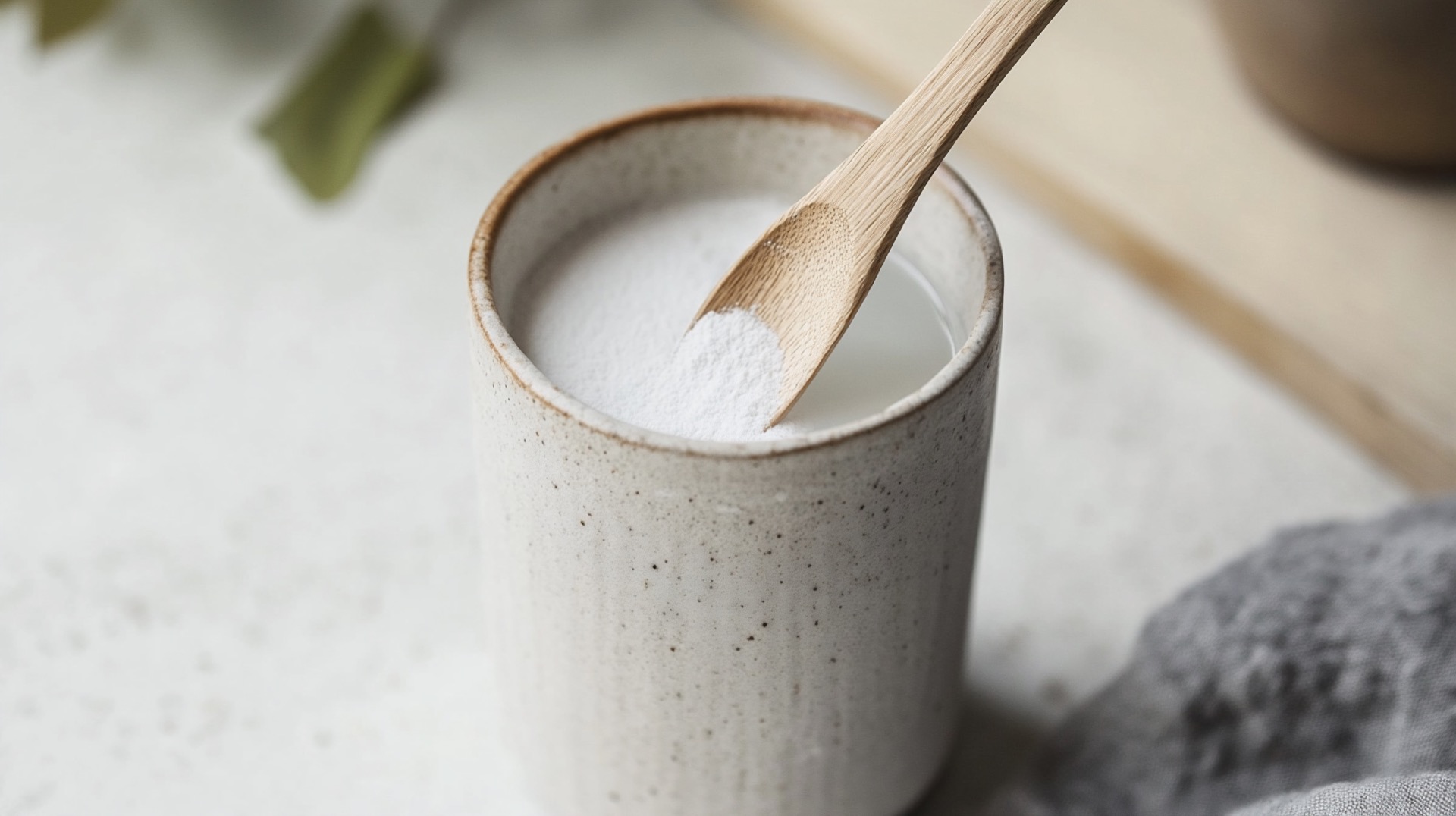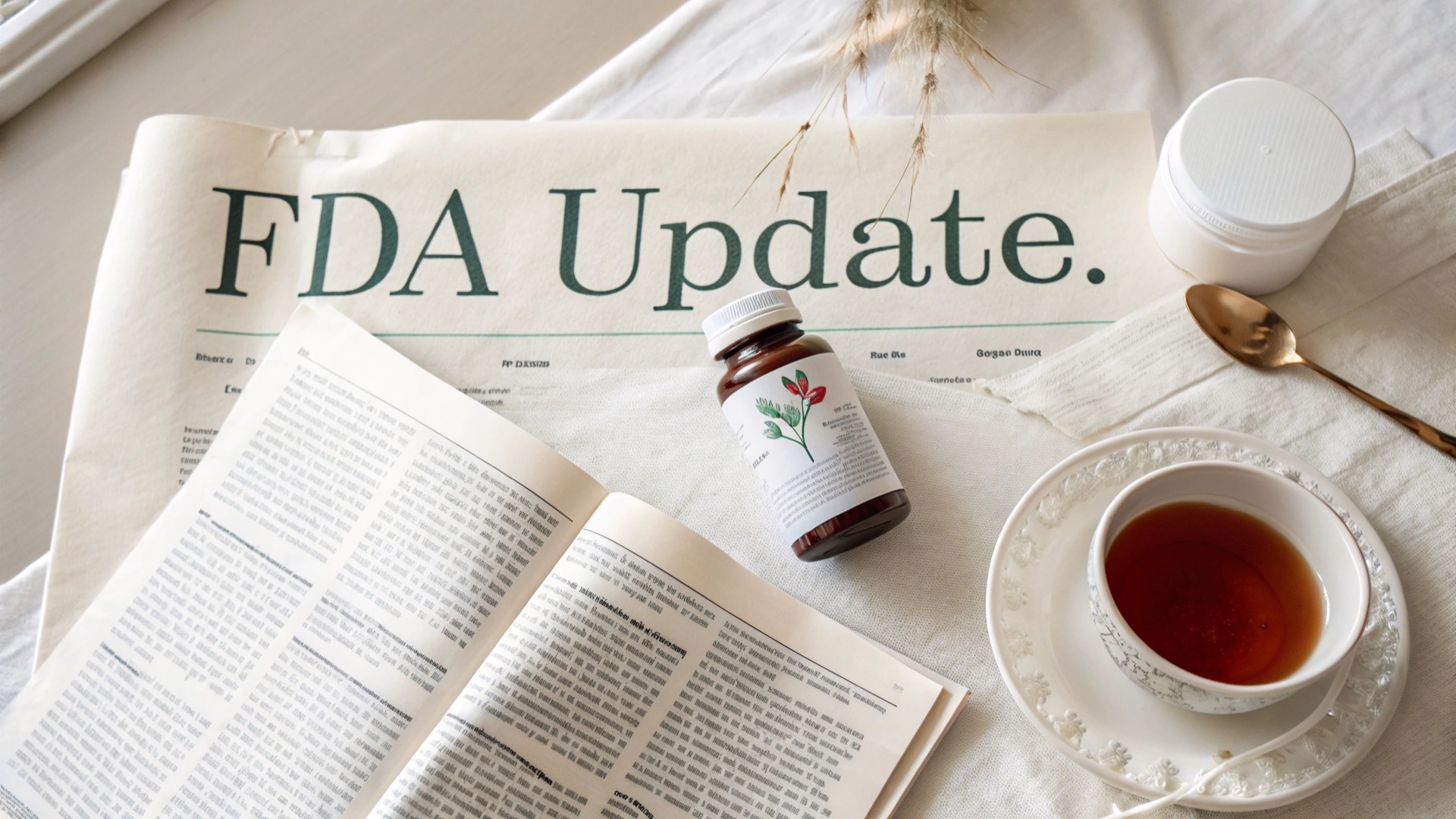Key takeaways
- Spermidine is a potent autophagy inducer. It triggers your body’s cellular recycling process, which is crucial for removing damaged cells and promoting renewal.
- Research indicates that spermidine can enhance cardiovascular function, lower blood pressure, and reduce the risk of heart disease.
- Boosts brain and cognitive function: It may protect against neurodegenerative diseases by clearing out toxic protein aggregates in the brain.
Overview
In the ever-evolving world of health and longevity, few compounds have generated as much excitement as spermidine. This naturally occurring polyamine, found in every living cell, is emerging as a key player in promoting healthy aging.
As our body’s natural levels of spermidine decline with age, scientific interest has surged in its potential health benefits, particularly in how dietary intake and supplementation can help us reclaim its youthful benefits.
This age-related decline in spermidine is associated with the onset of aging symptoms and age-related diseases, making strategies to counteract it an important focus for researchers.
What are the specific benefits of spermidine? From kickstarting your body’s cellular cleanup process to protecting your heart and brain, the evidence is compelling.
This guide will walk you through the science-backed benefits of spermidine, explaining how it works and how you can incorporate it into your life for better health and longevity.
What is spermidine, and why is it important?
Spermidine is a polyamine, a small molecule that is essential for cell growth, proliferation, and survival. It was first discovered in human semen, which is how it got its name, but it’s present in virtually all tissues of the human body and in many of the foods we eat.
Our bodies can produce spermidine through polyamine synthesis, a metabolic pathway that utilizes amino acids as precursors. However, our natural levels peak in our youth and begin to decline significantly as we age. This decline is linked to many of the hallmarks of aging, which is why maintaining adequate spermidine levels through diet and supplementation has become a key focus in longevity research.
The science behind spermidine’s power: Autophagy induction
The primary mechanism behind most of spermidine’s benefits is its remarkable ability to induce autophagy, a key cellular process.
Think of autophagy (which means “self-eating”) as your body’s cellular housekeeping service. It’s a natural, regulated cellular process where cells break down and recycle their own old, damaged, or dysfunctional components. This process is vital for:
- Removing cellular debris: Clearing out junk proteins and damaged organelles.
- Energy regulation: Providing fuel during periods of stress or fasting.
- Preventing disease: Eliminating pathogens and preventing the buildup of toxic proteins linked to diseases like Alzheimer’s and Parkinson’s.
Autophagy also plays a crucial role in regulating cell death and maintaining tissue health, which is essential for healthy aging and disease prevention.
As we age, our autophagy processes become less efficient. According to a landmark review in the journal Science by Madeo et al. (2018), spermidine acts to stimulate autophagy, essentially mimicking the effects of caloric restriction or fasting, one of the most well-established methods for promoting longevity.
By reactivating this cleanup crew, spermidine helps keep our cells youthful and resilient. In addition to autophagy, spermidine influences various biological processes such as cellular signaling and metabolism, further supporting cellular health and longevity.
Top 7 health benefits of spermidine
The ability of spermidine to enhance autophagy translates into a wide range of impressive health benefits that touch nearly every system in the body. Findings suggest that spermidine has beneficial effects on cellular health, fertility, and metabolic processes, which may support overall health.
- Promotes longevity and healthy aging
This is the most celebrated benefit of spermidine. By revitalizing the autophagy process, spermidine helps combat multiple aspects of aging at a cellular level. A 2022 review in Nature Aging by Hofer et al. detailed how spermidine’s mechanisms contribute to “geroprotection,” or protection against aging.
- Extends lifespan: Studies in various model organisms, including yeast, worms, flies, and mice, have shown that spermidine supplementation can significantly extend lifespan. In animal studies, aged mice treated with spermidine showed improved cardiac function, increased muscle strength, and reduced frailty, supporting its role in promoting longevity.
- Improves healthspan: Spermidine improves healthspan, the number of years we live in good health, free from chronic disease.
Overall, evidence from these studies suggests that spermidine delays aging by inducing autophagy, supporting mitochondrial health, and reducing the risks of age-related diseases.
2. Supports cardiovascular health
Cardiovascular diseases, including heart disease, remain a leading cause of mortality worldwide, and spermidine has emerged as a powerful cardioprotective agent. A groundbreaking 2016 study in Nature Medicine by Eisenberg et al. found that dietary spermidine:
- Protects against heart aging: It improved diastolic function and preserved cardiac structure in aging mice.
- Lowers blood pressure: It was associated with lower blood pressure and a reduced risk of cardiovascular disease in human populations.
- Reduces arterial stiffness: Research by LaRocca et al. (2013) demonstrated that spermidine can reverse age-related arterial stiffening, thereby improving the flexibility of blood vessels.
These effects are attributed mainly to spermidine’s ability to enhance autophagy within heart muscle cells, helping them clear out damage and function more efficiently.
3. Enhances brain and cognitive function
As we age, the brain becomes more susceptible to the buildup of toxic protein aggregates, a hallmark of neurodegenerative diseases like Alzheimer’s and Parkinson’s. Spermidine’s ability to cross the blood-brain barrier and induce autophagy in neuronal cells makes it a promising agent for brain health.
- Neuroprotection: By clearing out these toxic proteins, spermidine may help protect against the development of neurodegenerative conditions.
- Improved memory and cognition: Some studies suggest that spermidine can enhance synaptic plasticity, thereby supporting memory and learning processes.
However, the exact mechanisms by which spermidine influences brain health are still being investigated.
4. Boosts the immune system
A well-functioning immune system is crucial for fighting off infections and diseases, but it weakens with age (a process called immunosenescence). Spermidine appears to play a role in rejuvenating the immune response by:
- Enhancing immune cell function: Particularly the function of T-cells and B-cells. Spermidine may also help regulate immune cells, thereby reducing chronic inflammation associated with aging.
- Improving vaccine response: Some research suggests it could make vaccines more effective in older adults.
5. May have cancer-protective properties
The relationship between spermidine and cancer is complex, but its role in autophagy suggests a protective effect against cancer. By promoting the removal of damaged cells, particularly cancer cells, before they can become cancerous or proliferate, spermidine may help reduce the risk of cancer.
Research published in Cell Reports provides experimental evidence supporting the effects of spermidine on cancer cells, including its ability to induce autophagy and inhibit tumor growth. Epidemiological studies have linked higher dietary spermidine intake with lower overall mortality, including cancer-related mortality.
6. Supports metabolic health
Maintaining metabolic health is crucial for preventing conditions such as obesity and type 2 diabetes. Spermidine contributes to this by:
- Improving mitochondrial function: Healthy mitochondria are essential for efficient energy production.
- Enhancing insulin sensitivity: Helping the body regulate blood sugar levels more effectively.
- Regulating fat metabolism: Potentially reducing the accumulation of fat.
Spermidine may also help support a healthy body mass index (BMI), a key indicator of metabolic health. For those seeking metabolic benefits, spermidine is available as a dietary supplement in addition to dietary sources.
7. Improves skin, hair, and nail health
Because spermidine is essential for cell proliferation and growth, it also plays a role in skin, hair, and nail health. Spermidine helps maintain skin elasticity and delays visible signs of aging by protecting against oxidative stress, which is a significant factor in skin aging.
Additionally, spermidine supports wound healing by promoting skin repair and tissue regeneration after injury. Spermidine supports the growth of beneficial bacteria in the gut, which is essential for gut health and the gut-skin axis.
Healthy gut bacteria can positively impact skin health by supporting immune balance and reducing the severity of skin conditions. Spermidine’s anti-inflammatory properties help reduce excessive inflammation, benefiting skin conditions such as acne and eczema.
It may also help stimulate hair follicle growth and promote the production of keratin, a key structural protein in the hair.
How to increase your spermidine levels?
You can boost your spermidine levels through both diet and supplementation. Starting a new supplement regimen can help increase spermidine levels in a structured way, especially when combined with a balanced diet and guidance from a healthcare provider. Maintaining a consistent supplement regimen is essential for optimal results, as regular intake supports long-term benefits. For ease and consistency, consider incorporating spermidine into your daily routine by taking it at the same time each day, making supplementation a seamless part of your overall wellness plan.
Natural food sources of spermidine
Many foods, particularly those found in the Mediterranean diet, are rich in spermidine. Top sources include:
- Wheat germ: By far one of the most concentrated sources.
- Soybeans and soy products: Including natto, tofu, and tempeh.
- Aged cheeses: Such as cheddar, brie, and parmesan.
- Mushrooms: Especially shiitake mushrooms.
- Legumes: Lentils, chickpeas, and green peas.
- Whole grains: Brown rice, whole wheat bread, oats, and amaranth grain
- Nuts and seeds: Almonds, sunflower seeds, pumpkin seeds, and pistachios
Spermidine supplementation
For those seeking a more concentrated and consistent dose, a spermidine supplement is a popular choice. Most spermidine supplements are derived from wheat germ extract.
- Quality is key: Look for supplements from reputable brands that provide third-party testing for purity and potency.
- Dosage: There is no official recommended daily allowance (RDA) for spermidine. Most clinical studies use dosages ranging from 1 to 5 mg per day. It’s best to start with a lower dose and follow the manufacturer’s recommendations.
Safety and potential side effects
Spermidine is a naturally occurring compound in the body and is generally considered very safe, with a low risk of side effects. Since it’s present in many common foods, most people tolerate it well.
- Potential side effects: When side effects do occur, they are typically mild and may include minor gastrointestinal discomfort.
- Allergies: If you have a wheat or soy allergy, be sure to choose a supplement derived from a different source.
- Consult a professional: As with any supplement, it’s always a good idea to consult with your healthcare provider before starting, especially if you are pregnant, nursing, or have a pre-existing medical condition.
Bottom line
While no single compound is a “magic bullet” for aging, spermidine comes impressively close. Research published in Nature Cell Biology highlights how spermidine induces autophagy, promoting cellular cleanup, extending lifespan, and protecting against age-related diseases.
In conclusion, spermidine, with its science-backed benefits for cardiovascular health, brain function, and overall cellular rejuvenation, is a compelling option. By incorporating spermidine-rich foods into your diet and considering high-quality supplementation, you can harness the power of this remarkable compound to support your healthspan and live a more vibrant, healthier life.
Frequently Asked Questions (FAQs)
- How long does it take to see the benefits of spermidine?
The effects of spermidine are cellular and cumulative. While you may not “feel” it working immediately, consistent intake over several weeks to months is thought to be necessary to support long-term cellular health.
- Can I get enough spermidine from diet alone?
It’s possible, but it requires a very intentional diet rich in foods like wheat germ, soy, and aged cheese. Supplementation offers a more convenient and consistent way to ensure an optimal daily dose.
- How does spermidine compare to other longevity supplements like NMN or resveratrol?
Spermidine works primarily by inducing autophagy. NMN and NR support NAD+ levels for energy metabolism, while resveratrol activates sirtuins. They work through different but complementary pathways, and some people choose to take them together for a multi-faceted approach to healthy aging.
- Is spermidine safe for long-term use?
As a natural compound found in food and the human body, spermidine is considered safe for long-term use at recommended doses.
References
- Eisenberg, T., Abdellatif, M., Schroeder, S., et al. (2016). Cardioprotection and lifespan extension by the natural polyamine spermidine. Nature Medicine, 22(12), 1428–1438.
- Hofer, S. J., Simon, A. K., Bergmann, M., Eisenberg, T., et al. (2022). Mechanisms of spermidine-induced autophagy and geroprotection. Nature Aging, 2(12), 1112–1129.
- LaRocca, T. J., Gioscia-Ryan, R. A., Hearon Jr, C. M., & Seals, D. R. (2013). The autophagy enhancer spermidine reverses arterial aging. Mechanisms of Ageing and Development, 134(7-8), 314–320.
- Madeo, F., Eisenberg, T., Pietrocola, F., & Kroemer, G. (2018). Spermidine in health and disease. Science, 359(6374), eaan2788.
- Madeo, F., Bauer, M. A., Carmona-Gutierrez, D., & Kroemer, G. (2019). Spermidine: a physiological autophagy inducer acting as an anti-aging vitamin in humans? Autophagy, 15(1), 165–168.








